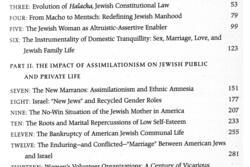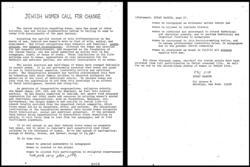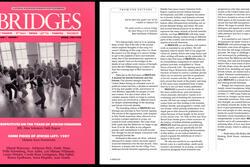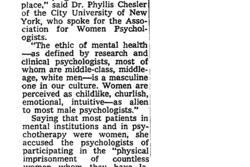What is the relationship between feminism and Judaism? Jewish feminists often feel that they bear several different identities – as women, as Jews, and as feminists. Sometimes these identities come into painful conflict, as when Jewish women faced anti-Semitism from their feminist peers, or experienced sexism in the Jewish community. Sometimes the effort to integrate one’s multiple identities opens new doors and creates new possibilities, bringing feminist insights to Jewish life and Jewish insights to the women’s movement.
Building Bridges
Jewish feminists often use the metaphor of a bridge to describe the role of feminism in their lives. Feminism enables some women to make new connections between their Jewish and secular communities, whether by creating coalitions or challenging the Jewish community to be more inclusive of women. For others, Jewish feminism bridges a more internal divide between their Jewish identity and their gender identity, allowing them to feel proud of each.
Judaism and Social Justice
Many Jewish feminists identify Judaism – and their experiences as a minority group – as the source of their commitment to social justice. For these women, Judaism and feminism are complementary partners in the work of Tikkun Olam (repairing the world).
Identities in Conflict
Some women experience tension between Judaism and feminism, identifying the limitations placed on women within traditional Jewish practice as troubling and incompatible with their feminist principles.
Anti-semitism in the Women's Movement
The women’s movement has struggled with anti-Semitism, creating painful moments for Jewish feminists. Some respond by leaving a movement that does not respect their identity, while others have worked from within to raise awareness of this problem and eradicate it.

















